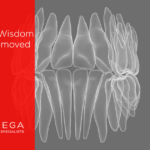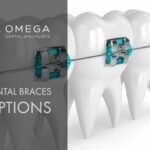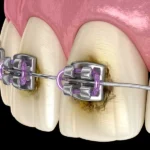What is Teeth Shifting, Symptoms, and Treatment
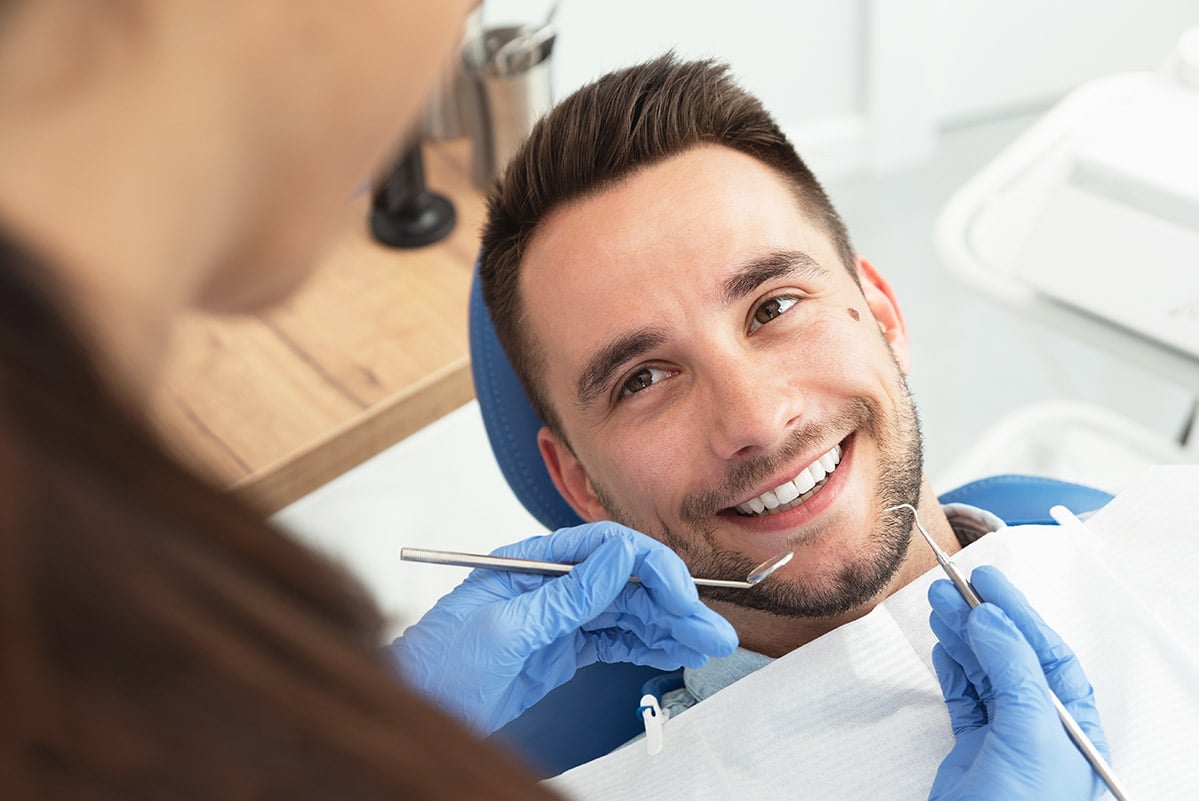
Teeth shifting could be normal, especially as you get older. However, it can cause a variety of issues, so it is something that you need to be aware of. Knowing the causes of shifting teeth in adults and adolescents, and how to stop teeth from moving, will help you to preserve your smile. While not all factors that result in shifting teeth are preventable, some are, allowing you to minimize movement of teeth in adults as much as possible. Between this and regular dental hygiene, it allows you to maintain better oral health throughout your life.
Table of Contents
Why Teeth Shifting Happens
It is common to view your teeth as objects that are immovable, but under the right conditions they may start to shift. When your teeth start to move around, it can lead to issues like smile gaps or problems with your bite alignment.
The gomphosis, a type of fibrous joint, keeps a tooth in its socket. The roots of a tooth and the socket connect due to the periodontal ligament. Under the right conditions, this ligament might move and stretch, allowing the tooth to shift. A variety of factors may affect this ligament so that tooth movement occurs, including:
- Wisdom teeth extraction
- Teeth shifting after braces
- Sleep apnea
- Gum disease
- Getting older
- Bone loss
- Jawbone changes
- The passage of time
- Teeth grinding
- Pressure due to talking and eating
Shifting Teeth Symptoms
Teeth shifting upward or in other directions generally have some symptoms that will alert you that changes are happening. These symptoms may include:
- You notice gaps in your teeth that were not there before
- If you wear a retainer, it starts to fit poorly when It did fit well
- If you look in the mirror and smile, you notice changes in the direction and location of some of your teeth
- You never had tooth sensitivity before, but notice that hot items, cold items, or both, are causing discomfort due to sensitivity
- One of more of your teeth starts to feel loose and you notice it is in a different position
Teeth Shifting Pain
It is not uncommon to have some pain when your teeth are moving. For most people, it is tolerable. In some cases, it might only happen when you eat something hot or cold. However, some people report discomfort when they wake up in the morning or after eating or talking.
Which Teeth Can Shift?
It is possible for any of your teeth to shift. For example, some people notice their bottom front teeth shifting while other experience some bottom or front teeth shifting upward. Ultimately, why your teeth are shifting will determine if it is your back or front teeth that start moving and in which direction. Exploring the various shifting teeth in adults causes will shed more light on why they could start moving.
Teeth Shifting After Braces
Whether you get braces in adulthood or when you are a child or teen, once your braces come off, there is a chance that your teeth will shift. In fact, that is a relatively common issue. One of the benefits of retainers is that they can help to prevent this.
On a daily basis, your teeth experience a lot of wear and are under pressure. When you are wearing braces, they help to keep your teeth in place, but once you remove them, your teeth do not have them to keep them where they need to be. Over time with pressure and wear, you might notice that your teeth are moving out of their proper position again unless you are using a retainer to keep them in place.
Teeth Shift After Wisdom Teeth Removal
Do teeth move after an extraction of a wisdom tooth? Yes, this can cause teeth to move because when you remove a tooth, there is a new space and nothing in it to prevent nearby teeth from moving toward it. With the tooth no longer in place, there is a reduced pressure. They might also move to correct misalignment or overlapping following an extraction.
See Also:Wisdom Teeth Removal Cost
Teeth Shift Over Time
How long does it take for teeth to shift? This ultimately depends on why they are moving, but it tends to take time. For example, if they are moving due to aging, they could move very slowly over several years. On the other hand, when your teeth start to move after wearing braces, it usually starts to happen within two years of removing your braces and no longer wearing a retainer.
Teeth Shift After Jawbone Growth
Adolescents experience growth spurts and when this happens, their jaw can grow too until it reaches adult size. In fact, all throughout your life, your facial bones change. A shift in your teeth can happen as your jawbone grows, especially when it comes to changes in your lower jaw. It grows forward and narrows as you progress through life.
As a result, your teeth can shift in a few ways. The first is that they can start to overlap and crowd together as jawbone narrowing continues. Your bite can change also, which can affect how your bottom and upper teeth come together. This can cause pressure, and over time, result in gaps in your upper teeth.
Teeth Shifting After the Jawbone Shrinks
When you lose teeth, this can cause your jawbone to shrink. As your jawbone loses mass, the teeth that are remaining can start to move to accommodate the smaller size of your jaw. How much they move and in which direction is dependent on how much jaw shrinkage you are experiencing.
Teeth Shifting with Periodontal Disease
Periodontal disease can cause issues like tooth loss and gum disease resulting in recession, both of which can cause your remaining teeth to shift. When you have all of your teeth, they help to keep each other in their normal position. If you lose a tooth, it causes a space that other teeth in the area can start to shift into. Over time, this can result in your bite getting out of alignment. You can experience this issue whether you lose your teeth naturally as a result of this condition or you have an extracted tooth.
Teeth Shifting with Bone Loss
Loss of dental bone can occur as a result of infection or disease. As your dental bone density decreases, you might notice that your teeth start to move, loosen or spread out.
Teeth Shifting with Teeth Grinding
Bruxism, also called teeth grinding, can cause a shift in your teeth. When this causes your teeth to shift, it tends to be painless and subtle. It happens when your jaws are moving when you grind your teeth, it creates a constant force that can shift or rock your teeth.
If you tend to clench your teeth a lot, your teeth can move for the same reason. The pressure can cause them to start moving in different directions.
Teeth Shifting When Using a CPAP for Sleep Apnea
There are different mask types that people use with a CPAP machine. The nasal mask is the one that is most likely to contribute to dental changes. With this type of mask, the underlying maxillary anterior teeth and the upper lift experience a high level of pressure. This pressure is what causes teeth movements to occur.
Teeth Shifting Due to Aging
Do teeth move over time as a result of getting older? As the years pass, it is natural for your teeth to slightly move forward in your mouth. Over time, this may result in your front teeth starting to crowd together to a point where trying to floss between them makes it difficult. They can also start pushing against each other which could cause them to become crooked.
Lip aging is another factor in this category. Your lips get tighter and smaller as you get older. This can cause pressure on your teeth which can cause them to start moving.
Pressure Due to Talking and Eating
When you talk and eat, this puts pressure on your teeth. Over time, this pressure can add up and cause your teeth to start moving.
Hormonal Changes
You might notice a shift in your teeth due to hormonal changes. Pregnant women are particularly at risk due to the hormonal changes that occur during pregnancy. When you are pregnant, there is more of the hormone relaxin throughout your body. This causes a loosening of ligaments, including the ones that function to keep your teeth in the proper position, known as the periodontal ligaments. Changes to the blood flow to your gums also happens during pregnancy. These two factors can combine and cause your teeth to move.
Other Reasons Your Teeth May Shift
In addition to these factors, certain other things may cause your teeth to shift, including:
- Smoking cigarettes
- Heavy consumption of alcohol
- Acid reflux disease causing acid erosion
How to Minimize Shifting Teeth
If your teeth are moving, or you are at risk for this, there are some things that you can do to prevent how much they start to shift. It is important to follow your dentist’s instructions exactly to get the most benefit.
Removable Retainers
After the removable of braces, your orthodontist will typically give you a retainer. They will tell you how often you need to wear it. You can remove it when you do not need to wear it, but make sure to not skip days because this could cause your newly straightened teeth to start moving into an abnormal position again.
Permanent Retainers
This is another type of retainer that your orthodontist might recommend after removing your braces. Once this retainer is put into place, it remains there because it bonds to your teeth. With this method, you do not have to worry about forgetting to put your retainer back in after removing it.
Treat Bruxism Teeth Shifting
If you grind your teeth, mouth guards can help to reduce the negative effects. In general, the dentist will recommend that you wear the mouth guards when you are sleeping at night since this is when most people tend to grind their teeth. These devices help to ensure distributed pressure on your teeth to decrease the damage that grinding causes.
Importance of Good Dental Hygiene
Good dental hygiene is the foundation to reduce the risk of all dental issues. Use the following as a guide to keep your gums and teeth healthy:
- Floss every day
- Avoid smoking and other habits that can harm your teeth and gums
- Brush at least twice daily
- Get dental checkups every six months
Dental Implants or a Dental Bridge
To help to prevent tooth movement after losing a tooth, dental implants or a dental bridge can help. Since they fill the empty space, your surrounding teeth are not likely to start moving toward it. Your dentist can discuss these two options with you and help you to decide on which will be the best to replace missing teeth.
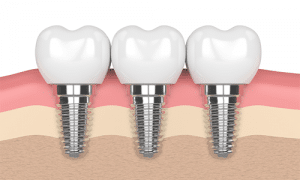 How to Stop Teeth from Shifting After Extraction
How to Stop Teeth from Shifting After Extraction
Replacing the extracted tooth is the best option. However, since you do not replace a wisdom tooth after removal, if you notice unnatural shifting, talk to your dentist. They can take X-rays and provide more information. If you had severe impaction of your wisdom teeth, your dentist may keep an eye on you to ensure no unnatural shifting.
No matter which teeth you lose, it is important to watch the nearby teeth during the tooth extraction healing stages. It can take a couple weeks for full recovery.
Get Help with Teeth Shift
Can your teeth shift? Now that you know that they can, it is important to know what to do should you experience it. The first step is to see an orthodontist who have experience with this issue, such as those at Omega Dental Specialists in Houston. They will evaluate your case and help you to develop a plan to stop the current issues, learn how to stop teeth from shifting and prevent future ones as a result of your teeth starting to shift.
While teeth shift is normal as you get older, there are things that you can do to minimize the movement of teeth in adults. Having a solid understanding of shifting teeth in adults causes and shifting teeth symptoms makes it easier to be on the lookout for issues so that your orthodontist can address them quickly. For more information and to schedule your consultation, contact Omega Dental Specialists in Houston today.

